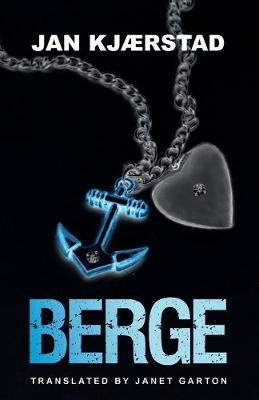Reviewed by clq on
The book is divided into three parts, each part consisting of a stream of consciousness of different characters. The murders act as a backdrop, and the book is really about the lives of these three characters, and how the murders affect them in different ways. To start with I caught myself wondering why so much of what I was reading had nothing at all to do with the plot. I liked what I was reading, it was entertaining, yes, thought-provoking, sure, but most of it just didn't drive the story forward at all. Furthermore, what seemed like important plot points were at times granted no more importance or fanfare than what the character was eating, or what they felt about their neighbours. I quickly realised that the plot wasn't the point. The crime is a catalyst, and the point of the book is the experiences and the thoughts of the characters we get to know, and the result is captivating and brilliant. It's hard to pin down an overall theme of the book. I suppose some form of existentialism, an angst about fitting in and the struggle to do just that are recurring themes, but the book really touches on a very wide range of subjects. Politics in general, Norwegian politics in particular, the hunger for justice, the difference, and the not necessarily the direct correlation between, perceived justice and actual justice. What is important in life, what is superfluous, what do we need to be happy, what do we need to do to belong, to feel like we belong, and how important is the feeling of belonging anyway? There is so much stuff in here, and I’m sure different parts of it will resonate in different ways with different people. If someone else were to pick out themes that they thought the book touched upon, their list would probably look very different to mine.
And, of course, it's impossible to read this book without drawing parallels between the plot in which a prominent Labour-party politician is killed by what seems to be terrorists, and the mass-murder that took place at the government-buildings and the Labour party youth camp on Utøya the 11th of July 2011. I was a bit nervous about how on the nose the parallels would be. Fortunately, they aren't. The event in the book took place in 2008, in a world where Norway "remained innocent", a place where terrible things like this just didn't happen. The parallels that are drawn are mostly in the reaction of society, the media, and the hunger by both society and the media to see the crime solved, and to see justice carried out in a way which is not only just, but also fitting and worthy of the well-functioning society we believe that we are. This book not only draws parallels, but also some juxtapositions with the reaction to the 22nd of July that are very interesting.
In any case, the references to the real terrorist-attack are, in my opinion, done in ways which are tasteful and justified, and it never feels gratuitous.
On top of it all there is a constant feeling of uncertainty throughout the story. There is a level of overlap between the stories of the different narrators, and more often than not they have different ways of interpreting or thinking about the same things. It can be something as simple as a conversation between two people where one person references completely different pieces of dialogue in their stream of consciousness recounting the conversation. There is no wrong, there is no right, there is just different. And even though both sides are completely accurate, the tone and purpose of the conversation differs wildly. This is done a few times, not only with conversations, but with the perceptions of events. It’s subtle, but it’s there, and it’s disconcerting when you find your thoughts around something, which have been established through one narrator, suddenly shaken by the point of view of the other narrator. And seeing as all the narrators are being completely honest when speaking to the reader, you have no reason to doubt either version. It makes one consider how few absolutes there really are in life, and how pretty much everything that is ever seen, heard, told, or even witnessed, can be heavily coloured by perceptions without any obfuscation or inaccuracies being intended.
Anyway, I’ve gone on about this book for long enough now, and if you’ve made it this far in this review (which I’m almost sure no one will do, I do these reviews mostly for my own retention) you probably have an impression of whether Berge is a book you might like. I can totally understand why some might not like, or even actively dislike this book, especially if they were expecting a plot-based thriller. It spends a whole lot of time really, and I mean really, indulging in its own tangents. If you’re not on board with plenty of spinning of yarn around what often seems like irrelevant tangents I can see how this book could get unbearably annoying. But for me, and for a couple of days of reading in the mountains in between skiing, this book was close to perfect.
Reading updates
- Started reading
- 29 March, 2018: Finished reading
- 29 March, 2018: Reviewed
